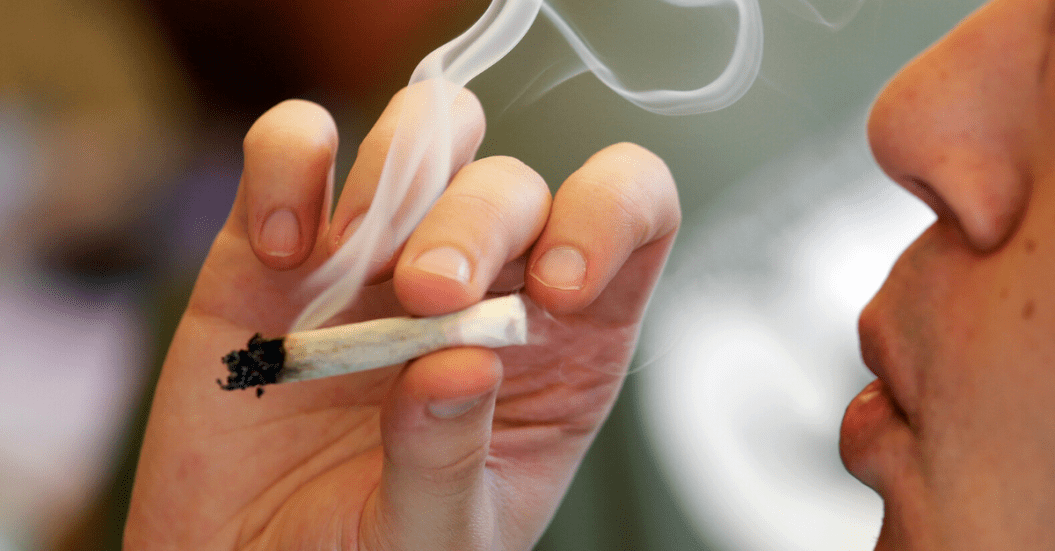The National Football League has long treated marijuana exactly how a professional sports league would be expected to treat an illegal drug: by banning the substance. As the times have changed and public perception of weed has changed, it should be no surprise that the NFL is slowly adapting its stance on the drug.
Videos by FanBuzz
That doesn't mean Josh Gordon's indefinite suspension is being lifted. I mean, he was still suspended eight different times by his team or the league. Greg Robinson, the offensive lineman caught by police with 157 pounds of weed, isn't off the hook either.
But for the NFL players who smoke weed to ease the pain from tackling each other every day or to suppress the anxiety that comes with playing in the league, the NFL is making it more acceptable to blaze up. Or at least less punishable.
NFL Proposes Eliminating Positive Drug Test Suspensions
The 2020 substance-abuse policy, subject to approval of new CBA, makes it clear: No player will ever be suspended again for positive drug tests https://t.co/t0lBmTHMUj
— ProFootballTalk (@ProFootballTalk) March 5, 2020
The NFL is overhauling its substance abuse policy as part of the proposed new Collective Bargaining Agreement sent to the NFL Players Association, and the league is giving players something they've wanted for a long time.
According to Pro Football Talk, NFL players can't be suspended over the next decade for testing positive for marijuana or any other substances of abuse in the proposed CBA. That means a positive test for something like weed won't keep a player off the field.
Positive drug tests will still be subject to fines, however.
If a player is in stage one of the substance-abuse program, a positive test result would warrant no penalty at all except being advanced to stage two. Once in stage two, a player can only incur fines for positive tests.
If the NFLPA votes in favor of this, the NFL's drug policy would scrap the third stage of its substance-abuse program. The penalty for a positive test in that final stage was banishment from the league for one year.
Once in stage two, here's how much each fine would cost for each violation in the new policy:
First violation: Half a game check
Second violation: Week's pay
Third violation: Two weeks' salary
Fourth and all subsequent violations: Three-game fine
The news here is that players would still be allowed on the field, which means a player like Josh Gordon was clearly playing in the wrong era.
According to PFT, a player would essentially have to try to get suspended under the new CBA. If a player fails to cooperate during testing or clinical care in the second stage, they can be suspended on the fourth violation for three games. A four-game suspension follows with the fifth violation, an eight-game suspension on the sixth violation and a year-long banishment for the seventh violation.
I know, confusing. Basically, as long as a player is cooperating, he won't be suspended for a positive test.
The proposed CBA has already angered NFL players across the league, and they've voiced that displeasure on social media. Some, like Los Angeles Chargers defensive back Casey Hayward, see this section of the CBA as a way to get players to sign it.
They want us to vote yes to smoke lol. We going to miss out on billions when the new TV deal comes and still have to play more games. Oh aight https://t.co/UbIsJd0DzS
— Casey Hayward (@show_case29) March 5, 2020
"I'm telling u bro. It doesnt seem right. Hope all the players dont feel pressured to vote yes. Everyone smokes anyways!!!" former NFL safety Eric Weddle wrote.
VOTE NO‼️ https://t.co/oh8btbsvrJ
— Todd Gurley II (@TG3II) March 5, 2020
🚨PSA FOR ALL NFL PLAYERS🚨 Great piece by @JCTretter on the current #CBA offer and its impact on all players for the next decade. Please read and get informed before you vote. #NFLPA #NFL #Football pic.twitter.com/SxwX6FJxgU
— David Bakhtiari (@DavidBakhtiari) March 4, 2020
Why The NFL Softening its Stance on Weed is Good
The NFL might be trying to entice players to agree to the new CBA with this tactic, but maybe it's genuinely softening its stance on weed to reflect a growing trend in the country. Marijuana is legal for medical use in 33 states and recreationally in 11 states.
NBC Sports' Joe Fann brought up a point that the NFL removing suspensions but keeping fines is possibly worse than being outright suspended because the players would essentially play for free.
If you ask me, it's a step in the right direction. Many players are smoking weed anyway, and they're not going to stop smoking weed despite random drug testing.
What happens when the drug becomes legal in every state? Does it really make sense players in California shouldn't be allowed to engage in marijuana use if it's legal in their state? Don't we all want Josh Gordon in the league?
The MLB and NHL have already taken marijuana off their lists of banned substances. That could be the next step for the NFL, but when? Only Roger Goodell knows for sure.
